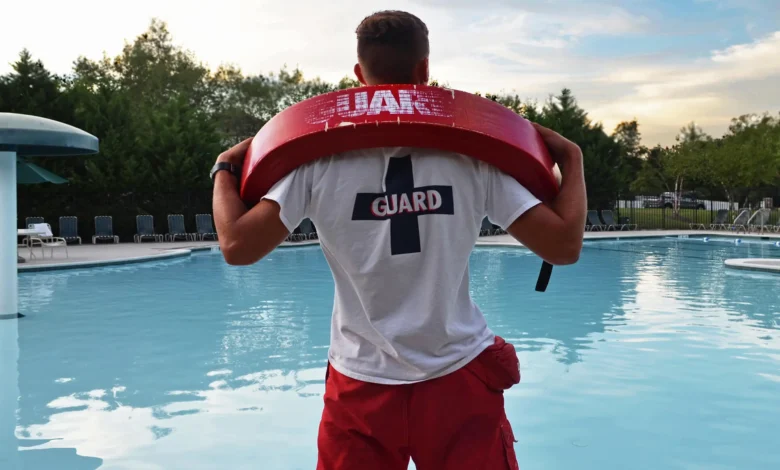When it comes to careers focused on water safety, a horde of opportunities anticipates those enthusiastic about guaranteeing the safety of others in aquatic environments. Whether you’re keen on becoming a lifeguard, water safety teacher, or seeking related roles, this profession offers different ways for people with a commitment to saving lives.
Lifeguarding: An Imperative Role
Lifeguarding plays a crucial role in water safety, including the surveillance of swimmers and quick response to emergencies. The essential duty spins around preventing drownings and giving swift help when accidents happen. Lifeguards go through thorough training to outfit themselves with important skills and knowledge.
Essential Skills for Water Safety Professionals
Professionals in water safety should have a scope of skills, including strong abilities to swim, speedy dynamic under tension, viable communication, and capability in first aid and CPR. These skills are crucial for answering speedily to emergencies speedily and guaranteeing the safety of people in aquatic settings.
Career Ways in Water Safety
1. Lifeguard: The role of a lifeguard includes watching assigned regions, identifying likely risks, and going to proactive lengths to prevent accidents. Lifeguards are prepared to answer swiftly to emergencies, for example, drowning, cardiac arrest, or injuries, giving critical consideration until additional medical help shows up.
2. Water Safety Educator: Water safety teachers play an imperative role in instructing people of any age about safe swimming practices, water basic instincts, and essential rescue techniques. They lead lifeguard training and deal lifeguard classes close to me to plan hopeful lifeguards for their certification tests.
3. Aquatics Facilitator: Aquatics organizers regulate aquatic facilities, oversee lifeguard teams, foster safety protocols, and direct training programs. They guarantee consistency with safety standards and regulations while encouraging a culture of water safety inside their organizations.
4. Aquatic Facility Director: Aquatic facility chiefs are liable for the general effort and maintenance of pools, beaches, or water parks. They regulate staffing, planning, safety inspections, and client care, guaranteeing a protected and charming experience for guests.
Benefits of a Career in Water Safety
1. Remunerating Work: Saving lives and advancing water safety can be extraordinarily satisfying and fulfilling. Realizing that your skills and endeavours straightforwardly contribute to preventing accidents and safeguarding lives adds significant reason to your work.
2. Different Workplaces: Water safety professionals have the opportunity to work in different settings, including public pools, beaches, water parks, resorts, journey boats, and community focuses. Every environment presents interesting difficulties and encounters, keeping the work dynamic and locking in.
3. Professional Development: Nonstop learning and skill development are inborn in this profession. Lifeguards and water safety educators go through ordinary training and certification updates to remain ebb and flow with best practices and headways in safety protocols.
4. Career Progression: With experience and extra certifications, water safety professionals can progress to administrative or management roles inside aquatics divisions. Initiative opportunities might incorporate becoming a head lifeguard, aquatics chief, or safety facilitator.
Difficulties and Responsibilities
Close by the prizes, careers in water safety accompany significant responsibilities and difficulties. Water safety professionals should stay watchful consistently, remaining cautious of possible dangers and acting swiftly in emergencies. The idea of the job requires physical stamina, mental versatility, and the capacity to keep even-tempered under tension.
Community Effect
Water safety professionals play a crucial role in advancing community health and prosperity. By instructing people about safe swimming practices, offering lifeguard training, and authorizing safety protocols, they contribute to decreasing the risk of drownings and water-related accidents.
Their endeavours establish more secure environments for entertainment and relaxation exercises, helping people of any age and foundation.
Arising Patterns in Water Safety
Headways in innovation and safety practices keep on moulding the field of water safety. Advancements, for example, automated checking frameworks, augmented reality reenactments for lifeguard training, and further developed rescue equipment improve the viability and proficiency of water rescue activities. Water safety professionals should keep up to date with these developments to ceaselessly adjust and work on their practices.
Advancing Diversity and Consideration
Endeavours to advance diversity and consideration inside the water safety profession are building up some decent forward momentum. Organizations are effectively attempting to establish more comprehensive environments, select assorted abilities, and give equivalent opportunities to a headway. Embracing diversity strengthens teams as well as cultivates a more comprehensive way to deal with water safety education and outreach.
Concluding Remarks: Pursuing a Career in Water Safety
In conclusion, the water safety profession offers an extensive variety of career opportunities for people enthusiastic about defending lives in aquatic environments. Whether you decide to become a lifeguard, or water safety educator, or seek after administrative roles, the effect of your work in preventing drownings is significant to advance safe swimming practices.
Consider investigating lifeguard training and lifeguard classes near me to leave for a satisfying career in water safety. Joining organizations like the American Lifeguard Association can likewise give you important resources and systems administration opportunities as you advance in your water safety career venture.
